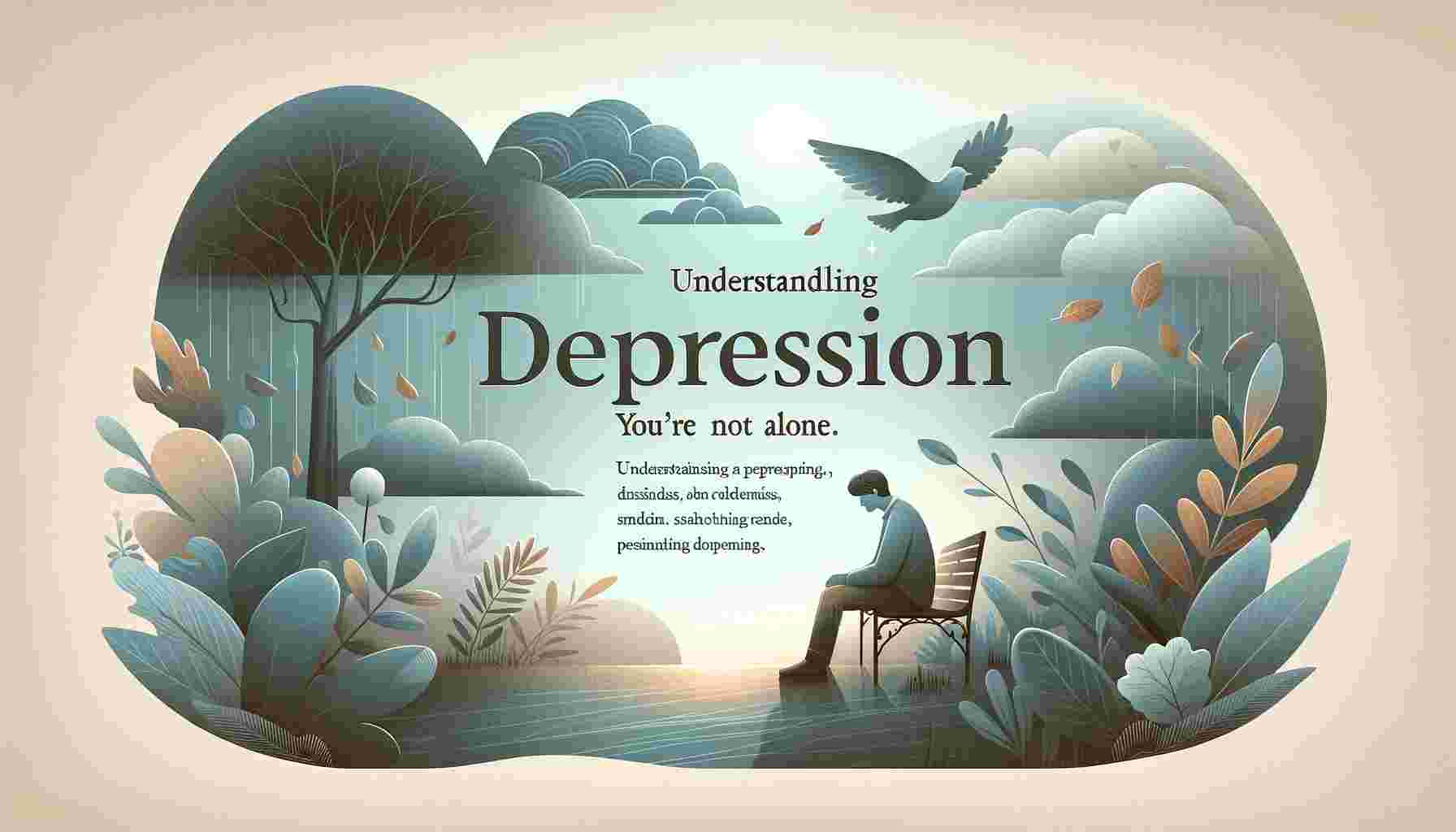Health
Best Electrolyte Drink to Prevent Muscle Cramps: Top Picks and Benefits

Electrolytes are essential minerals that help regulate important bodily functions such as muscle contractions, nerve impulses, and hydration. When the body loses electrolytes through sweat, it can lead to muscle cramps, fatigue, and decreased athletic performance. To prevent these symptoms, many athletes turn to electrolyte drinks to replenish their bodies during and after exercise.
There are a variety of electrolyte drinks on the market, each with its own unique blend of minerals and flavors. Some popular options include sports drinks like Gatorade and Powerade, as well as natural alternatives such as coconut water and pickle juice. But which electrolyte drink is the best for preventing muscle cramps?
Understanding Electrolytes and Muscle Cramps
Electrolytes are essential minerals that help maintain proper fluid balance and muscle function in the body. When electrolyte levels become imbalanced due to sweating, dehydration, or other factors, muscle cramps can occur.
Muscle cramps are sudden, involuntary contractions of one or more muscles that can be painful and debilitating. They can occur during exercise or at rest and are often caused by an imbalance of electrolytes such as sodium, potassium, magnesium, and calcium.
To prevent muscle cramps, it’s important to maintain proper electrolyte balance by staying hydrated and replenishing electrolytes lost through sweat. This can be done by drinking electrolyte-rich fluids such as sports drinks or coconut water, or by consuming foods high in electrolytes such as bananas, avocados, and leafy greens.
In addition to maintaining proper electrolyte balance, stretching and warming up before exercise, and gradually increasing intensity and duration of activity can also help prevent muscle cramps.
Overall, understanding the role of electrolytes in muscle function and taking steps to maintain proper balance can help prevent muscle cramps and improve overall athletic performance.
Selecting the Best Electrolyte Drink
When it comes to selecting the best electrolyte drink to prevent muscle cramps, there are several factors to consider. Here are some key points to keep in mind:
Ingredients to Look For
A good electrolyte drink should contain a balance of essential electrolytes such as sodium, potassium, magnesium, and calcium. These minerals play a crucial role in maintaining proper hydration and muscle function. Look for drinks that also contain carbohydrates to provide energy during exercise.
Hydration and Electrolyte Balance
Proper hydration is key to preventing muscle cramps. It’s important to drink enough fluids before, during, and after exercise to maintain fluid balance in the body. Electrolyte drinks can help replenish the minerals lost through sweat and maintain proper hydration levels.
Product Recommendations
There are many electrolyte drink products available on the market, each with its own unique blend of ingredients. Some popular options include Gatorade, Powerade, and Nuun. It’s important to read the labels and choose a product that contains the right balance of electrolytes and carbohydrates for your needs.
Natural Alternatives
For those who prefer natural alternatives, coconut water and tart cherry juice are both good options. Coconut water is rich in potassium and magnesium, while tart cherry juice contains antioxidants that can help reduce inflammation and muscle soreness.
Overall, selecting the best electrolyte drink to prevent muscle cramps requires careful consideration of ingredients, hydration levels, and product options. By choosing the right drink and staying properly hydrated, athletes can help prevent muscle cramps and perform at their best.
Health
Depression Ottawa: Understanding Symptoms, Causes, and Treatment Options

Depression is a serious mental health condition that affects millions of people worldwide. In Canada, depression is one of the leading causes of disability, affecting approximately 8% of the population. In Ottawa, the prevalence of depression is no different, with many individuals struggling with the condition.
Depression Ottawa is an organization that aims to provide support and resources to individuals living with depression in the Ottawa area. The organization offers a variety of services, including support groups, individual counseling, and educational resources. With a team of experienced mental health professionals, Depression Ottawa is dedicated to helping individuals overcome the challenges of depression and lead fulfilling lives.
Understanding Depression in Ottawa
Prevalence and Statistics
Depression is a common mental health disorder that affects a significant number of people in Ottawa. According to the Ottawa Public Health, approximately 1 in 5 Ottawa residents will experience a mental health problem, including depression, in their lifetime. In 2019, there were over 3,000 hospitalizations for mental health-related issues in Ottawa, and depression was one of the leading causes.
The prevalence of depression in Ottawa varies across different age groups and genders. Women are more likely to experience depression than men, with a prevalence rate of 8.3% compared to 5.4% in men. The highest prevalence of depression is among young adults between the ages of 20-24, with a rate of 10.4%.
Risk Factors and Local Influences
There are several risk factors associated with depression, including biological, psychological, and social factors. In Ottawa, some of the local influences that contribute to depression include poverty, unemployment, social isolation, and access to healthcare services.
Research has shown that poverty and unemployment are significant risk factors for depression. In Ottawa, approximately 5.6% of the population lives in poverty, and the unemployment rate is 5.1%. These factors can lead to financial stress, social isolation, and a lack of access to resources, which can increase the risk of depression.
Social isolation is another risk factor for depression, and it is particularly prevalent among seniors in Ottawa. Approximately 30% of seniors in Ottawa live alone, and many report feeling lonely and socially isolated. This can lead to depression and other mental health issues.
Access to healthcare services is also an important factor in preventing and treating depression. In Ottawa, there are several resources available for individuals experiencing depression, including community mental health clinics, crisis lines, and support groups. However, there are also barriers to accessing these services, such as long wait times and stigma surrounding mental health.
Overall, understanding the prevalence of depression and the local influences that contribute to it is essential in developing effective strategies for prevention and treatment. By addressing the risk factors and improving access to resources, Ottawa can work towards reducing the impact of depression on individuals and the community.
Resources and Support in Ottawa
Local Mental Health Services
Ottawa offers a range of mental health services that can help individuals struggling with depression. The Royal Ottawa Mental Health Centre is a leading provider of specialized mental health services in the region. It offers inpatient and outpatient services, as well as specialized programs for mood and anxiety disorders. Another option is the Ottawa Hospital’s Mental Health Program, which provides a wide range of services, including emergency psychiatric care, outpatient clinics, and specialized programs for specific mental health conditions.
Community Outreach Programs
Community outreach programs can be a valuable resource for individuals looking for support and guidance in managing their depression. The Canadian Mental Health Association (CMHA) Ottawa Branch offers a variety of programs and services, including support groups, peer support, and educational programs. The Distress Centre of Ottawa and Region provides 24/7 crisis support and referral services for individuals in distress.
Emergency Assistance and Hotlines
If you or someone you know is experiencing a mental health crisis, there are several emergency assistance and hotline services available in Ottawa. The Ottawa Police Service provides a Mental Health Unit that can respond to mental health-related emergencies. The Mental Health Crisis Line, operated by the CMHA Ottawa Branch, provides 24/7 telephone support and crisis intervention. The Kids Help Phone is a national hotline that provides 24/7 support for children and youth in crisis.
Overall, Ottawa offers a range of resources and support services for individuals struggling with depression. Whether you are looking for specialized mental health services, community outreach programs, or emergency assistance, there are many options available to help you manage your mental health and well-being.
Health
Autism Services in Ottawa: A Comprehensive Guide

Autism is a neurodevelopmental disorder that affects communication, social interaction, and behavior. It is estimated that 1 in 66 Canadian children is diagnosed with autism spectrum disorder (ASD). While there is no known cure for autism, there are various interventions and therapies available to help individuals with autism lead fulfilling lives. In Ottawa, there are several services available to support individuals with autism and their families.
Autism services Ottawa range from diagnosis and assessment to therapy and support. Diagnosis and assessment services include developmental screening, comprehensive diagnostic assessments, and ongoing monitoring of progress. Therapy services may include speech and language therapy, occupational therapy, and behavioral therapy. Support services may include respite care, parent training, and advocacy. These services are typically provided by a team of professionals, including psychologists, speech-language pathologists, occupational therapists, and behavior analysts.
Understanding Autism Spectrum Disorders
Autism Spectrum Disorder (ASD) is a neurodevelopmental disorder that affects communication, social interaction, and behavior. It is a complex disorder that affects individuals differently, and its severity can range from mild to severe.
Diagnosis Criteria
The diagnosis of Autism Spectrum Disorder is based on the criteria outlined in the Diagnostic and Statistical Manual of Mental Disorders (DSM-5). The DSM-5 criteria include deficits in social communication and social interaction and restricted, repetitive patterns of behavior, interests, or activities.
To meet the diagnostic criteria for ASD, an individual must have persistent deficits in social communication and social interaction across multiple contexts. These deficits may include difficulty in initiating and maintaining conversations, lack of interest in social interactions, and difficulty in understanding nonverbal communication.
Additionally, an individual must also demonstrate restricted, repetitive patterns of behavior, interests, or activities. These may include repetitive movements, insistence on sameness, and intense interests in specific topics.
Early Signs and Symptoms
Early signs of ASD can be observed in children as young as 18 months old. These signs may include delayed language development, lack of interest in social interaction, and repetitive behaviors.
Other early signs of ASD may include:
- Delayed or absent language development
- Difficulty in making eye contact
- Lack of interest in playing with other children
- Repetitive behaviors, such as flapping hands or spinning objects
- Sensory sensitivities, such as being bothered by certain textures or sounds
It is important to note that not all individuals with ASD will exhibit the same signs and symptoms, and the severity of these symptoms can vary widely.
Overall, understanding the diagnostic criteria and early signs of Autism Spectrum Disorder is crucial in identifying and providing appropriate support and services for individuals with ASD.
Autism Services in Ottawa
Ottawa offers a range of services for individuals with autism. These services are designed to support individuals with autism and their families in various aspects of their lives. The following subsections outline some of the available services in Ottawa.
Public Health Resources
The Ottawa Public Health Department offers various resources for individuals with autism and their families. These resources include information about autism, early identification and intervention, and access to community resources. The department also offers workshops and training for parents and caregivers of individuals with autism.
Private Therapy and Support
There are several private therapy and support services available in Ottawa for individuals with autism. These services offer a range of therapies, including speech and language therapy, occupational therapy, and behavioural therapy. These services may be covered by private insurance or out-of-pocket.
Educational Programs and Schools
Ottawa has several educational programs and schools that cater to individuals with autism. These programs offer specialized instruction and support for individuals with autism, including behaviour management strategies, social skills training, and individualized education plans. Some of these programs are publicly funded, while others are privately run.
Community Support and Integration
There are various community support and integration programs available in Ottawa for individuals with autism and their families. These programs offer social and recreational activities, respite care, and support groups for individuals with autism and their families. These programs aim to promote inclusion and community integration for individuals with autism.
Overall, Ottawa offers a range of services for individuals with autism and their families. These services aim to support individuals with autism in various aspects of their lives, including health, education, and community integration.
Health
CBT for Teens: Effective Techniques for Managing Anxiety and Depression

Cognitive Behavioral Therapy (CBT) is a type of psychotherapy that has been found to be effective in treating a wide range of mental health issues, including anxiety, depression, and post-traumatic stress disorder. CBT focuses on changing negative thought patterns and behaviors to help individuals develop healthier coping mechanisms. Recently, CBT has gained popularity as a treatment option for teenagers struggling with mental health issues.
CBT for teens is a modified version of traditional CBT that takes into account the unique challenges and developmental stage of adolescence. It aims to help teenagers identify and challenge negative thoughts and beliefs, and develop practical skills to manage their emotions and behaviors. CBT for teens typically involves a combination of individual therapy sessions and group therapy, and may include parental involvement to support the teen’s progress.
Research has shown that CBT for teens can be effective in reducing symptoms of anxiety, depression, and other mental health issues. It can also help improve overall well-being and quality of life for teenagers. As mental health awareness continues to grow, CBT for teens is becoming an increasingly popular and accessible treatment option for adolescents and their families.
Understanding CBT for Teens
Basics of Cognitive Behavioral Therapy
Cognitive Behavioral Therapy (CBT) is a type of psychotherapy that focuses on changing negative patterns of thinking and behavior. It is a short-term therapy that is goal-oriented and structured. CBT is based on the idea that our thoughts, feelings, and behaviors are interconnected and that by changing our thoughts, we can change our feelings and behaviors.
CBT for teens typically involves working with a therapist to identify negative thought patterns and behaviors that may be contributing to their emotional distress. The therapist then helps the teen to challenge and reframe these negative thoughts, and develop new, more positive ways of thinking and behaving.
Adapting CBT for Adolescent Needs
Adolescents have unique needs and challenges that may require some adaptation of CBT techniques. For example, teens may struggle with self-esteem issues, peer pressure, and identity formation. CBT for teens may involve more emphasis on social skills training, assertiveness training, and problem-solving skills.
Additionally, CBT for teens may involve more family involvement than traditional CBT. Family therapy can help to address family dynamics and communication patterns that may be contributing to the teen’s emotional distress.
Overall, CBT is a highly effective therapy for teens struggling with a range of mental health issues, including anxiety, depression, and substance abuse. With the help of a skilled therapist, teens can learn to identify and challenge negative thought patterns, develop coping skills, and improve their overall well-being.
Implementing CBT with Teens
CBT (Cognitive Behavioral Therapy) is a highly effective approach for treating mental health issues in teens. However, implementing CBT with teens requires a unique set of skills and strategies. In this section, we will discuss some effective ways to implement CBT with teens.
Engagement and Rapport Building
Engaging with teens is crucial for the success of CBT. Teens may be hesitant to participate in therapy, so building rapport is essential. Therapists should use a warm, empathetic, and non-judgmental approach to create a safe and supportive environment. They should also use age-appropriate language and actively listen to the teen’s concerns.
Techniques and Activities
CBT for teens involves various techniques and activities that help them understand and change their negative thought patterns and behaviors. Some of the techniques include cognitive restructuring, behavioral activation, and exposure therapy. Therapists should tailor the techniques to the teen’s specific needs and preferences. They should also ensure that the techniques are practical and easy to implement in the teen’s daily life.
Measuring Progress and Outcomes
Measuring progress and outcomes is essential to determine the effectiveness of CBT. Therapists should use standardized assessment tools to measure the teen’s symptoms and functioning at the beginning, middle, and end of the treatment. They should also involve the teen in setting treatment goals and regularly review the progress towards these goals. This helps to keep the teen motivated and engaged in the therapy process.
Overall, implementing CBT with teens requires a skilled and experienced therapist who can create a safe and supportive environment, use age-appropriate techniques, and measure progress effectively. With the right approach, CBT can help teens overcome their mental health issues and lead a fulfilling life
-

 Tech10 months ago
Tech10 months agoModyukle: Understanding the Basics of this Innovative Technology
-

 Blog10 months ago
Blog10 months agoAndre Hakkak Net Worth: A Look at the Wealth of the Businessman
-
Tech10 months ago
Expotab.com Login: How to Access Your Account
-

 Business10 months ago
Business10 months agoCash Discount Merchant Services: Everything You Need to Know
-

 Blog10 months ago
Blog10 months agoJack Doherty Net Worth: How Much is the Social Media Star Worth?
-

 Health10 months ago
Health10 months agoWell Health Tips in Hindi: Organic Ways to Improve Your Overall Health
-

 Tech10 months ago
Tech10 months agoSecurity Testing Company: Ensuring Your Business’s Safety
-

 Home & Garden9 months ago
Home & Garden9 months agoLuxury Kitchens Toronto: Experience the Ultimate in Modern Design and Functionality





